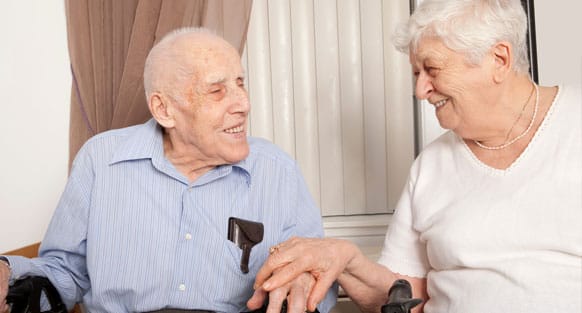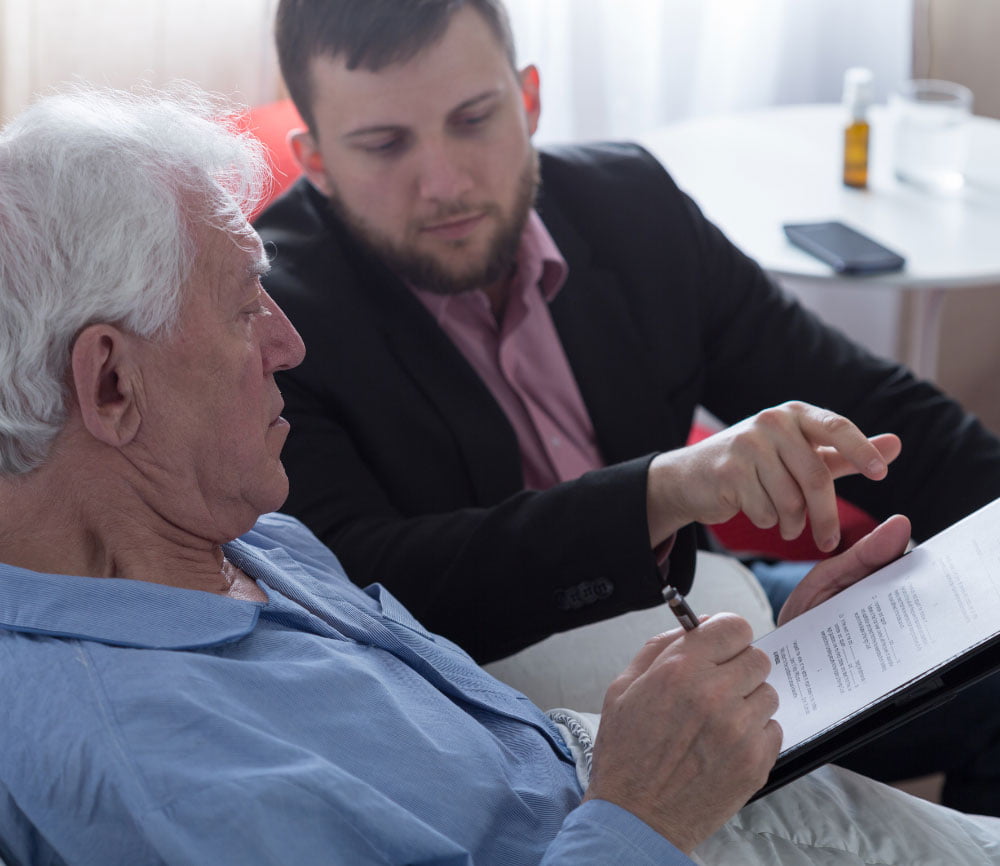Estate planning is about more than wills and inheritance. A binding financial agreement (BFA) can act as a planning [...]
Making a Will in Queensland –
Will Lawyers Brisbane
Creating a Will is essential, but it’s only part of protecting your future. An enduring power of attorney ensures that someone you trust can make important financial and health decisions on your behalf if you’re ever unable to. Without one, your family could face delays, legal complications, or even court intervention. At QFLP, our experienced family lawyers can help you establish a legally binding enduring power of attorney tailored to your needs.
More than 100+ years of combined lawyer experience.
We all know that having a will can help to ensure our wishes are carried out after we die. But did you know that there is more than just writing and signing a will? In Australia, having Enduring Power of Attorney (EPOA) and Advanced Health Directives (AHDs) in place are also essential for protecting your interests in life and death. In this article, we’ll explain why these two documents are so important – don’t miss it!
For those who aren’t aware, an EPOA grants someone the authority to make financial and/or health decisions on behalf of another person if they become unable to do so themselves due to illness or injury. You can also appoint someone to make decisions on your behalf in certain circumstances such as being out of the country for an extended period of time. An AHD sets out instructions about what medical treatments should be provided in certain circumstances. Both documents serve as legal instruments which allow individuals to determine how their affairs should be handled if they become incapacitated.
When it comes to putting together a plan for your future, having both an EPOA and an AHD is just as important as having a valid will. Without them, you’re leaving yourself vulnerable and open to potential complications down the track – something nobody wants! Find out more by reading this informative article today.
Definition Of an Enduring Power of Attorney (EPOA)
An Enduring Power of Attorney (EPOA) is an important legal document that grants someone the authority to make decisions on behalf of another person. It allows a nominated person or persons (the ‘attorney’) to decide how their finances and legal affairs should be managed in the event they become unable to do so themselves due to illness, incapacity or disability. An EPOA will remain valid even if the person granting it loses mental capacity, provided its requirements are met. This makes it distinct from other types of power of attorney documents, which only remain valid for as long as the grantor has full mental capacity.

In order for an EPOA to come into effect, certain criteria must be met: firstly, the grantor must have given informed consent; secondly, both parties must agree upon who will act as attorney; thirdly, there needs to be clear understanding between all involved about what powers have been granted and under what circumstances they can be exercised; finally, appropriate witnesses must sign off on the agreement.
What Is an Advanced Health Directive?
Moving on from Enduring Power of Attorney (EPOA), it is important to understand what an Advanced Health Directive (AHD) is. An AHD is a legal document that allows individuals to express their wishes and preferences regarding medical treatment, should they become unable to communicate in the future. It also allows people to appoint someone as their health care agent, who can make decisions based on the individual’s best interests if they are not able to do so themselves.
An AHD typically covers:
Having an AHD ensures that your rights and beliefs are respected with regards to medical treatments while you cannot speak for yourself. This helps protect you from unwanted interventions and provides peace of mind knowing that your healthcare choices will be honoured by doctors and nurses when needed.

Why Having a Will Is Not Enough
When it comes to creating an estate plan, having a will is just the beginning. There are two other important documents that should be included in your overall strategy: Enduring Power of Attorney (EPOA) and Advanced Health Directives (AHD). These documents can provide peace of mind for both you and your loved ones during times of incapacity or illness.
| EPOA | AHD |
|---|---|
| Allows someone else to manage your finances if you become unable to do so yourself. | Applies to health-related issues such as life support directives. |
| Gives instructions on how you would like medical decisions made if you’re unable to communicate them yourself. | Is valid even after death – specifying organ donation wishes and funeral arrangements. |
| Can cover only financial or only health matters if desired. |
In addition to providing protection should something happen to you, these documents also make it easier for those left behind by giving clear direction about what needs to be done when the time comes. It’s worth noting that there are specific requirements regarding who must sign each document, as well as witnessing requirements which vary from state-to-state – so seek professional advice before proceeding. Taking the time now will help ensure your wishes are honoured later on down the track.
Benefits Of EPOA And Advanced Health Directives
Having an Enduring Power of Attorney (EPOA) and Advanced Health Directive in place is essential to protect your rights and wishes. An EPOA allows you to appoint someone to manage your financial affairs should you become incapacitated, while an Advanced Health Directive enables you to plan for future medical decisions. Both documents ensure that the person making them will be respected if they are unable to make their own decisions.
The benefits of having these documents prepared in advance are immense as it ensures that any decision made on behalf of the individual will reflect what is best for them and not necessarily what those around them may want or think is best. It also helps family members avoid conflict over how to move forward with a situation by providing guidance from the individual themselves. Having these documents in place can provide peace of mind knowing that no matter what happens, people have chosen who they trust to make decisions on their behalf and have provided detailed instructions about how they wish certain matters to be handled.

Responsibilities Of The Attorney/Executor
Having a Will is an important legal document that outlines your wishes after you pass away, but it’s not enough. While you are alive, having an Enduring Power of Attorney (EPOA) and Advanced Health Directive (AHD) in place is essential. It’s the responsibility of the appointed attorney or executor to ensure these documents are followed and all instructions within them are respected. Once you have passed, an EPOA is no longer valid and any Attorney you have appointed under this document can no longer act in that capacity.
The EPOA grants someone you trust authority over your financial affairs. This includes making decisions about investments, bank accounts, real estate, taxes and more. The AHD outlines how medical care should be handled for end-of-life decisions when you can’t make such choices yourself due to illness or injury. Both documents must be detailed and specific so there is no confusion as to what needs to be done at any given time by the appointed person(s).
Your attorney/executor has the legal obligation to follow through with whatever steps need taking according to the criteria outlined in both documents; they have a fiduciary duty towards you which means they cannot act on their own behalf while managing your affairs. They must also keep accurate records of all transactions and report back regularly as required by law.
Who Can Make An EPOA Or Advanced Health Directive?
In Australia, anyone aged 18 or over can make an Enduring Power of Attorney (EPOA) and Advanced Health Directive. An EPOA is a legal document that allows someone to appoint another person as their attorney – this means they can act on behalf of you in financial matters if they are unable to do so themselves. An Advanced Health Directive enables people to set out their wishes regarding medical treatment should they become too ill to communicate them directly.

Anyone making an EPOA must be mentally competent when signing it; similarly, those creating an Advanced Health Directive need to have decision-making capacity at the time of writing it. This ensures individuals are aware of what they’re doing and fully understand the implications of their decisions. It also helps protect against possible abuse from family members or others who may wish to take advantage of someone’s vulnerable position. We recommend obtaining a certificate of capacity from your doctor before you sign an EPOA to ensure your capacity cannot be challenged. Both documents should be signed in front of two witnesses who cannot benefit from either document and one witness should be a lawyer or justice of the peace for validity purposes.
How To Make An EPOA Or Advanced Health Directive
Creating an Enduring Power of Attorney (EPOA) and Advanced Health Directive are important steps in the process of estate planning. An EPOA is a legal document that allows you to appoint someone else, known as your attorney, to make decisions on your behalf if you become incapacitated or unable to do so yourself. An Advanced Health Directive (AHD) outlines your wishes regarding medical treatment should you be too ill to communicate them, such as whether you would like life-sustaining treatments or organ donations.
Making an EPOA and AHD can seem daunting but with proper planning it’s easy for Australians to put these documents in place. Here’s how:

Taking time now to create valid EPOAs and AHDs ensures that if anything happens down the line, there won’t be any doubt about who gets control of your affairs or what kind of care is provided for when needed most. It also gives peace of mind knowing that no matter what comes up later on, everything is already taken care of according to one’s own preferences.
When Does Your EPOA/Advanced Health Directive Come Into Effect?
It’s important to understand that having a Will is not enough. An Enduring Power of Attorney (EPOA) and Advanced Health Directive are also important documents for anyone over the age of 18 years in Australia. These documents come into effect when you become mentally incapacitated or physically unable to make decisions about your own health care, finances and/or personal matters.
When an EPOA is granted to another person – usually a trusted family member or friend – they will be able to act on your behalf with regards to financial and legal matters while you’re still alive but no longer have capacity. This can include signing contracts and selling property among other things. An advanced health directive outlines what medical treatments you would like or don’t want in the event that you are no longer able to make those decisions yourself due to mental incapacity or physical disability. It also allows someone else to make these decisions on your behalf if required. Both documents need careful consideration as it’s vital that they properly reflect your wishes at all times. If either document needs updating, contact a lawyer specialised in estate planning straightaway.
Requirements For Making A Will In Australia
Making a Will is an important part of planning for the future, but it’s not enough to ensure that your wishes are carried out. In Australia, there are other legal documents you need in order to make sure your instructions are followed if something happens to you. These include an Enduring Power of Attorney (EPOA) and Advanced Health Directives.
An EPOA allows someone else to manage your financial affairs on your behalf should you become unable to do so yourself. This could be due to illness or disability, which can also prevent you from making decisions about medical treatment. An Advanced Health Directive sets out what kind of medical treatments you would accept or refuse in such situations. Both documents must be signed by independent witnesses who have no vested interest in your estate, as well as being formally witnessed by either a lawyer or Justice of the Peace.
Without these additional documents, even having a valid will may not guarantee that your wishes will be respected when the time comes.

When Should You Review Your EPOA/Advanced Health Directive?
It is important to understand that having a will alone is not enough. While it provides instructions for the distribution of your assets upon death, it does not provide guidance on decisions relating to legal and medical matters while you are alive. This is why Enduring Powers of Attorney (EPOAs) and Advanced Health Directives (AHDs) in Australia are so important.
An EPOA appoints someone who can make financial and/or personal decisions on your behalf if you become incapacitated or mentally incapable. AHDs allow people to document their wishes regarding health care treatments they do or don’t want to receive should they be unable to communicate them at a later date. Without these documents, family members may have difficulty making decisions about what type of treatment you would like to receive if you become unwell.

Reviewing both your EPOA and AHD regularly is essential as circumstances change throughout life – marriage, divorce, job changes etc – which means the person appointed under an EPOA could also change over time. In addition, reviewing these documents ensures that any new medical developments are taken into account when considering end-of-life treatments. So it’s important to review your EPOA/Advanced Health Directive every few years or whenever there has been a major life event such as marriage, divorce or moving house.
The Role Of Guardianship Board In Australia
Having a will is important, but it’s not enough to ensure that your wishes are respected when you’re unable to make decisions for yourself. In Australia, this is where the Guardianship Board comes in. The board has the power to appoint guardians or administrators who can act on behalf of someone who lacks capacity to make decisions about their financial affairs and medical treatment. This process helps protect vulnerable people from exploitation and abuse by making sure that any decision made on their behalf is done so with regard to their best interests.
The role of the Guardianship Board includes ensuring that all stakeholders involved—family members, friends, advocates—are aware of the importance of having an Enduring Power of Attorney (EPOA) document as well as Advanced Health Directives (AHDs). An EPOA allows someone else to manage personal finances if needed while AHDs set out instructions regarding medical treatments should one become incapacitated. These documents provide clear guidelines which help prevent family disputes over what would be in one’s best interest. Ultimately, they safeguard the rights and autonomy of those who may not have the mental capacity to do so themselves.
Other Alternatives To Wills And EPOAs
Moving on from the role of Guardianship Board in Australia, it is essential to understand why having a will isn’t enough and the importance of Enduring Power of Attorney (EPOA) and Advanced Health Directives. Having a will ensures that your wishes are respected after you pass away; however, if you become incapacitated before passing or unable to make decisions for yourself due to illness or injury, then a Will cannot help. This is where EPOAs come in. An EPOA allows you to nominate someone else as your financial decision maker should something happen which prevents you from making those decisions yourself.
Advanced health directives allow individuals to provide instructions about their future medical care. In this way, even if one becomes incapable of making decisions regarding healthcare due to mental incapacity or unconsciousness, their instructions outlined in advanced health directives will be followed by doctors and other healthcare professionals. Therefore, it is evident that an individual’s best interests can only be fully represented when they have both a will and EPOAs/advanced health directives set up together
What Happens If You Don’t Have An EPOA Or Advanced Health Directive?
Without having an Enduring Power of Attorney (EPOA) or Advanced Health Directive, your family and friends are unable to make decisions on your behalf in the event that you’re incapacitated. This can lead to serious consequences for both yourself and those closest to you.
If something happens to you without them being appointed as decision-makers, it could mean legal issues for your family who wants to access funds from your bank account or sell property owned by you. In these cases, they would need to apply through the court system which takes time and money. Additionally, if no one is legally authorized to make medical decisions on your behalf then hospital staff must follow protocols such as consulting with extended family members before making any medical decisions. This process can cause emotional stress and grief as well as financial losses due to associated costs.
The best way around this situation is to create a valid will appointing executors or trustees and obtain an Enduring Power of Attorney (EPOA) so that someone can take over managing finances; at the same time getting an Advance Health Care Directive (AHD) means somebody else can handle healthcare matters should you become too ill or injured to do so yourself.
Where To Get Help Writing A Will, An EPOA, Or An Advanced Health Directive
Writing a will, an EPOA, or an Advanced Health Directive can be complex and difficult. It’s important to get help from a qualified professional who understands the legalities of these documents. Your lawyer or the public trustee are both good sources for assistance in drafting wills and EPOAs, while advance health directives should be created with input from medical professionals familiar with relevant healthcare policies.
For those looking for free options, there are many non-profit organisations that offer services such as template forms, checklists and advice on how to write certain documents. These resources can provide support during the process of creating a will or other document but it is always best practice to have someone knowledgeable review each document before signing it off.
Important Considerations Before Making A Will, EPOA Or Advanced Health Directive
Making a will, Enduring Power of Attorney (EPOA) and Advanced Health Directive (AHD) are important considerations for anyone planning their estate. Before making any decisions about these documents it is wise to familiarise yourself with the different types of documents available in your state or territory:
Will
This document outlines how you want your assets distributed after death. It also allows you to appoint guardians for your children if necessary.
Considerations:
EPOA
This document enables you to appoint someone else as an attorney who can make financial and lifestyle decisions on your behalf in the event that you become incapacitated or unable to make those decision yourself due to age, illness or some other reason.
Considerations:
AHD
An Advanced Health Directive is a legal document which authorises another person (your Agent/Representative) to act as an advocate for you when it comes to medical treatments and procedures in case of incapacity. It could include instructions such as whether or not life support systems should be used in certain situations or what type of pain relief medication may be administered.
Considerations:
Taking time before deciding on any of these documents is essential, ensuring all legal requirements are met within each state and territory’s law is recommended. Seeking advice from our experienced lawyers will help ensure these decisions are done properly and best reflect personal wishes at the time they were created.
Frequently Asked Questions
When should I review my EPOA/Advanced Health Directive? It’s important to understand that estate planning goes beyond having a will in place. EPOAs and Advanced Health Directives provide additional protection for yourself, your family, and your assets if you become incapacitated. Reviewing these documents regularly is essential to ensure they accurately reflect the decisions you would make in any event.
Reviews of these documents should be done at least every three years or when there are significant changes in life circumstances, such as marriage or divorce, birth of children, moving interstate, etc. Additionally, it’s recommended that reviews are done after certain age milestones: 18-21 years old; 35-45 years old; 65+ years old. At each milestone, one should take the time to assess their personal situation and update their documents accordingly.
It’s also wise to have someone else review your documents with you – like a trusted friend or financial advisor – to help identify any areas where changes may need to be made. Remember that having an up-to-date EPOA/Advanced Health Directive can save you and your loved ones from unnecessary stress down the line. Taking the time now could make all the difference later on.
Making a valid will in Australia is an important step to take when it comes to ensuring your wishes are respected. To create a legal document that’s recognized by the courts, there are certain requirements you must meet. It’s vital for individuals to familiarize themselves with these rules before making their wills.
The most crucial requirement for drafting a will in Australia is that it must be done in writing and signed by two witnesses who are both present at the same time. Furthermore, you must have mental capacity to make a will and understand its implications, as well as being over 18 years of age or married if younger. Additionally, all people signing the will should not be beneficiaries listed within the document itself. As long as these conditions are met, then your will is considered legally binding after death.
It’s also important to remember that while having a will enables you to specify how your assets should be distributed upon demise, it doesn’t provide any protection against incapacity during life—that requires other documents such as Enduring Power of Attorney (EPOA) and Advanced Health Directives (AHD). Failing to prepare these documents can leave loved ones without options or authority if you become incapacitated and unable to make decisions on your own behalf.
Are there any alternatives to EPOA and advanced health directives? It’s possible, but it would depend on the individual’s situation. For example, if a person is able to make decisions for themselves at the time when they need to do so, then an alternative might be available. Here are some potential options:
Are there any alternatives to EPOA and advanced health directives? It’s possible, but it would depend on the individual’s situation. For example, if a person is able to make decisions for themselves at the time when they need to do so, then an alternative might be available. Here are some potential options:
If someone dies without creating a will, an Enduring Power of Attorney (EPOA), or Advanced Health Directive (AHD), their family and friends may face significant difficulties when it comes to managing the deceased’s estate. Without these documents in place, there is no clear legal authority over how assets should be distributed or who makes medical decisions for them. This can cause major disruption for those left behind as they try to figure out what to do with their loved one’s belongings or provide care during crises.
In such cases, the court often has to intervene and appoint an administrator through probate proceedings. This creates delays that could have been avoided if the person had taken the time to create a will and other relevant documents while still alive. It also means that any wishes expressed by the deceased about how they would like their affairs managed are unlikely to be respected because there is no way of legally enforcing them. Furthermore, families may find themselves at odds due to disagreements arising from not having a clear plan in place beforehand.
Without proper guidance on how a person would like things handled after death, many aspects related to estate planning can become messy and complicated for those left behind. The best way to ensure your wishes are carried out is by taking proactive steps before passing away – such as drawing up a valid will, appointing an EPOA and preparing an AHD – so your legacy can continue even in your absence

























